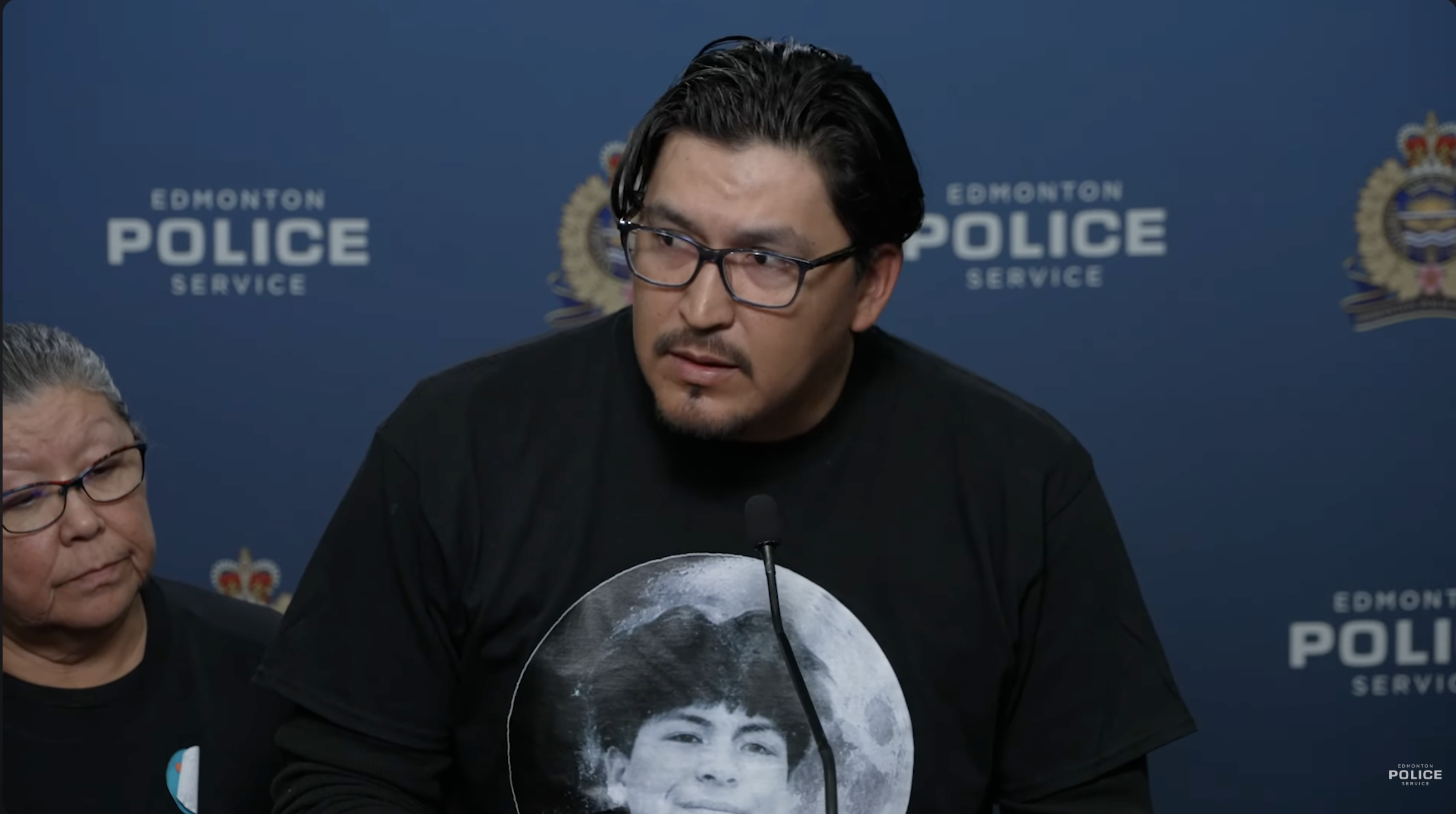Lollypop
A story from nehiyaw historian Alphonse Little Poplar’s memoirs


Trigger Warning: This story contains content about attending a residential “school.” Please read with care for your spirit and well-being.
In 1986, Alphonse Little Poplar and Irene Fineday welcomed a family friend named David Doyle to their family land on the Sweetgrass First Nation. Mr. Doyle spent three months staying in a small building next to their home, over the winter. He spent his evenings interviewing Alphonse, recording these interviews on a cassette recorder. After leaving the reserve, Mr. Doyle had their contents transcribed. Unfortunately, over time all of the cassettes save for one were accidentally destroyed.
In June of 2020, Mr. Doyle gifted Eden Fineday, IndigiNews’ Business Aunty, and Alphonse and Irene’s granddaughter, with ownership and possession of the manuscript containing all of her grandfather’s transcribed stories. IndigiNews is publishing these stories so that Alphonse’s incredible memories and gentle storytelling may be shared with our readers.
Portions of this manuscript have previously been published in the Battlefords News Optimist.
That same doctor, Dr. Norquay, used to come there and act like a dentist, he’d pull teeth too.
These boys, when they’d get a tooth pulled they would get a lollypop. My cousin Ben hadn’t seen any candy for a whole year. He thought, “By golly, I want to get one too.” So he went over there.
“Which one is sore?” the old Doc said.
“This one.” There was nothing wrong with it.
“This the one that hurts?” old Doc Norquay asked.
“Yep.”
Holy, that must of hurt. No needle or nothing. Ben was going to yell or cry out, “stop!” But he noticed that the Doc had already pulled it out.
After that he pretended to laugh, the nun gave him two lollypops cause he laughed. That was pretty good pay, but he didn’t try it again.
Dear cuzzins, if you or anyone you know is struggling with a visit with depression, suicidal ideation or attempts we want you to know help is available at KUU-US Crisis Line Society.
Adults/Elders (250-723-4050), Child/Youth (250-723-2040), Toll free (1-800-588-8717), or the Métis Line (1-833-MétisBC).
Author
Latest Stories
-
‘Bring her home’: How Buffalo Woman was identified as Ashlee Shingoose
The Anishininew mother as been missing since 2022 — now, her family is one step closer to bringing her home as the Province of Manitoba vows to search for her
-
‘He was full of spirit, promise and love’: Police confirm Samuel Bird is presumed dead as search area narrows
Remains of the 14 year old, whose spirit name is Achakapis, are believed to be ‘no more than 150 km’ from ‘Edmonton,’ according to investigators












